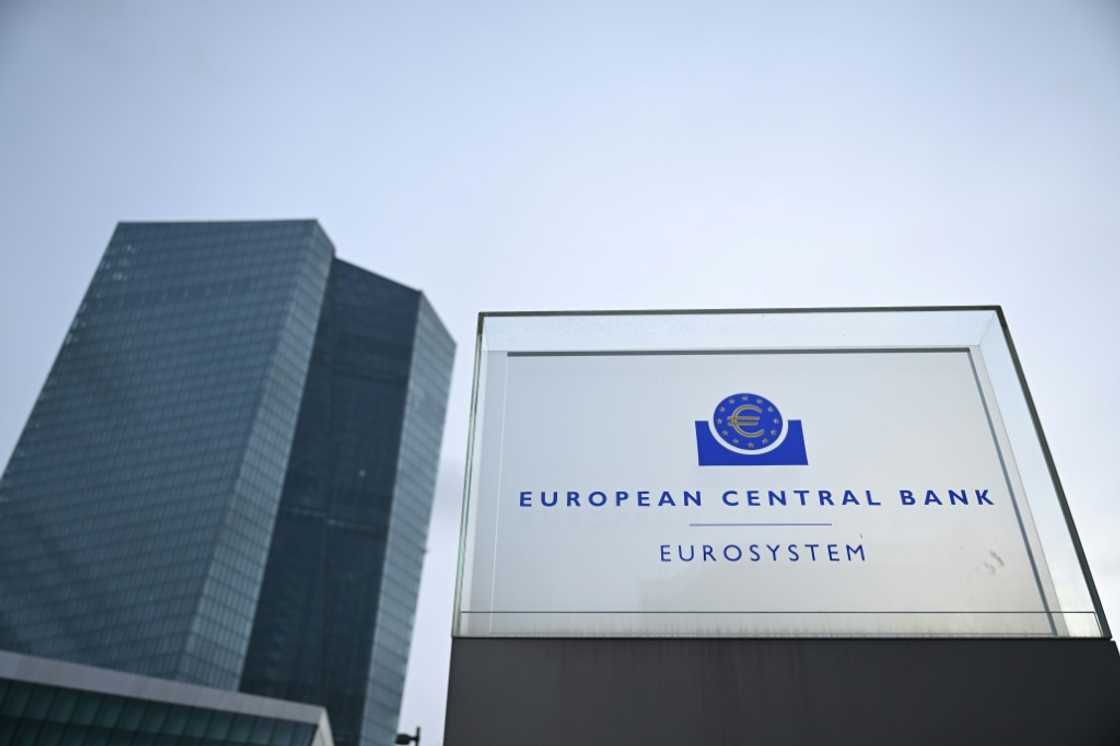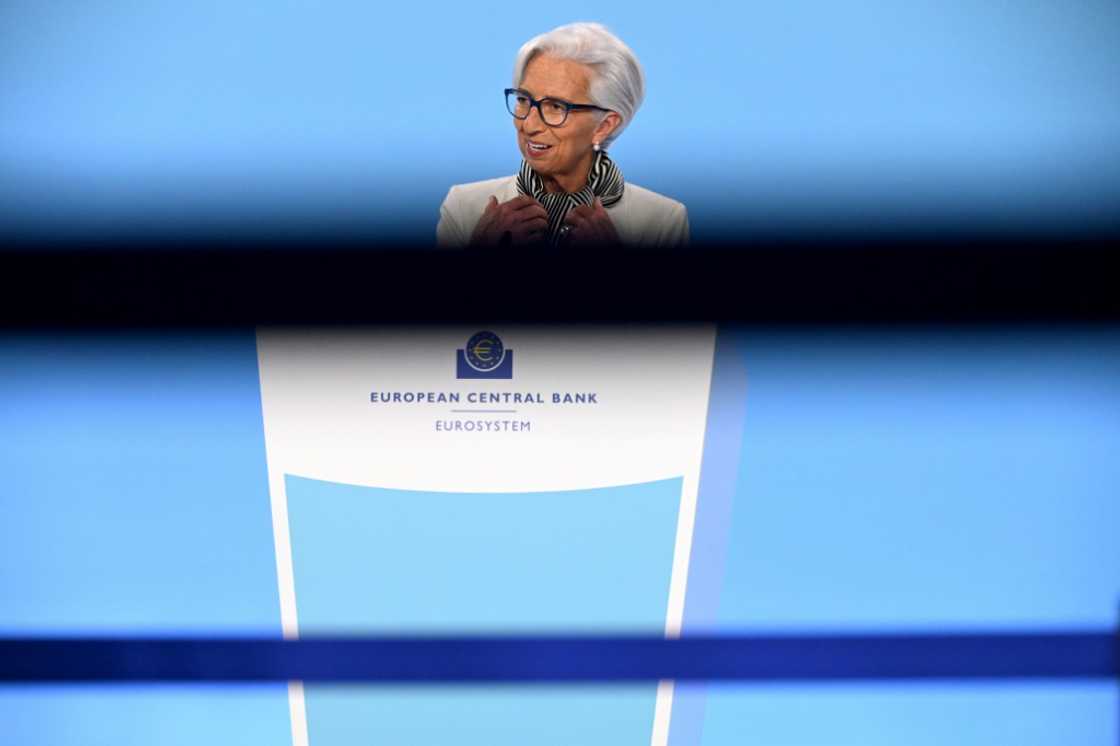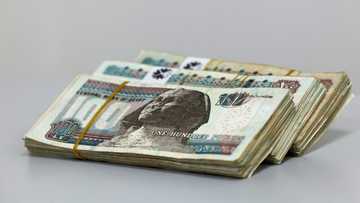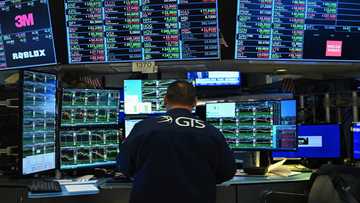Sticky inflation to keep eurozone interest rates on hold

Source: AFP
Sticky inflation is expected to prompt eurozone rate-setters to hold borrowing costs steady again Thursday, as they await clearer signs of a sustained easing of consumer prices before beginning to cut.
Costs of everyday goods surged following Russia's invasion of Ukraine and amid pandemic-related supply chain woes, prompting the European Central Bank to launch a historic rate hiking cycle.
Inflation, which peaked at over 10 percent in late 2022, has been steadily easing, hitting 2.6 percent in February, heading towards the ECB's two-percent target.
At the same time the outlook is bleak, with the eurozone narrowly dodging a technical recession in the second half of 2023, weighed down by a poor performance in its biggest economy, Germany.
Slowing inflation and a worsening economy should bolster arguments for rate cuts. But consumer price rises are not slowing as quickly as hoped, and the ECB is worried about completing the "last mile" to reach its target.
The Frankfurt-based institution's governing council is widely expected to hold the benchmark deposit rate steady at a record four percent for a fourth straight meeting on Thursday.
"We don't think the ECB will be confident enough that the eurozone has gone far enough 'along the disinflation process'... even to discuss rate cuts, let alone signal that one is imminent," said HSBC in a note.
Still, the meeting will be closely watched for clues on when the ECB will start cutting borrowing costs, with most investors now betting on a first move in June.
Vital to their calculations will be the bank's updated forecasts due to be released alongside the rate decision, with a slight downward revision expected for this year's GDP growth as well as inflation.
'Next move is down'
Analysts believe the drivers of inflation have shifted from energy costs, which surged after Russia invaded Ukraine in 2022, to inflation in the services sector and wage growth.

Source: AFP
"Wage growth remains elevated with little sign of a rapid turnaround yet, fuelling the stickiness in services inflation," said Frederik Ducrozet, chief economist at Pictet Wealth Management.
Heightened geopolitical tensions in the Middle East have also added to worries that inflation could rebound.
Yemeni rebel attacks on Red Sea shipping have prompted shipping companies to avoid the vital trade route, while a spillover of the Israel-Hamas war could impact oil prices.
The US Federal Reserve, which holds its next rate-setting meeting on March 19-20, is also struggling with when to begin cutting rates, as a series of strong economic readings dim the prospects of early reductions.
For the ECB, there is little doubt that its next move will be a cut.
"There might be a hold, and hold, and a hold, and a hold, but the next move will be downward," ECB President Christine Lagarde said at the end of January.
Speculation had risen at the end of last year that a cut could come as soon as March, as inflation started dropping heavily.
But these expectations evaporated as price rises proved stubborn, with underlying inflation -- stripping out volatile energy and food costs -- in particular not coming down as fast as hoped.
While observers are now betting on a first cut in June, they expect the process to move slowly.
"We expect the ECB to ease monetary policy in a gradual fashion, cutting rates by a cumulative 100 (basis points) in 2024," said Ducrozet.
PAY ATTENTION: Stay informed and follow us on Google News!
Source: AFP




